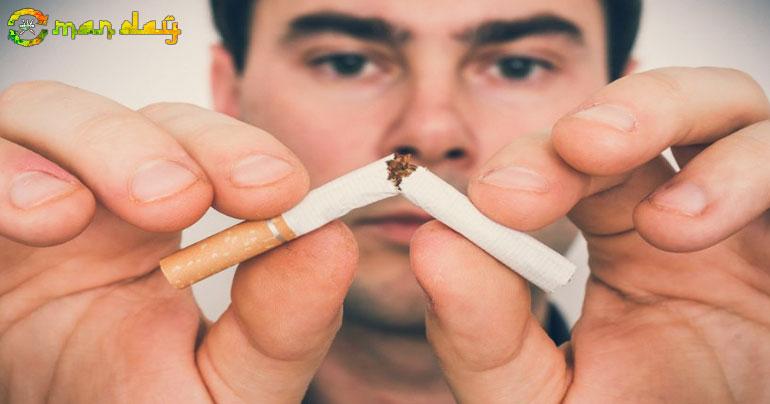Quitting smoking: How it changes your body within minutes, hours and weeks
Giving up cigarettes means you're beginning to make a healthier behaviour that will contribute to an improved overall health. While quitting smoking isn't the easiest task to attempt, it could save your life. The reason why it's so hard to quit is that cigarettes contain nicotine, a highly addictive substance found naturally in tobacco. Nicotine, when inhaled, travels quickly to the brain and can cause a feeling of temporary relaxation and/or stress relief. Nicotine can also elevate your mood and your heart rate. However, this feeling is only temporary.
After your body rids itself of the drug, you start to crave another cigarette. But research suggests that quitting smoking benefits your health in various ways. Perhaps, the health benefits are almost instant and begin in as little as 20 minutes after you ditch the cigarettes.
The World Health Organisation (WHO) described smoking as the single greatest preventable cause of disease, disability, and death globally. Smoking harms almost every part of your body - from the canals of your ears to the intricate blood vessels of your circulatory system. According to the NHS Choices, smoking increases your risk of developing more than 50 serious health conditions, including cancer, stroke, heart and lung disease. Some may be fatal and others can cause irreversible long-term damage to your health. Smoking also damages your skin and causes premature wrinkles.
Read more:Top Tips to Stop Smoking
Here is a timeline of how your body changes immediately after you quit smoking. Take a look:
After 20 minutes
As you smoke and inhale, nicotine is carried deep into your lungs. The substance is then quickly absorbed into the bloodstream, raising your blood pressure and heart rate. But, in as little as 20 minutes after you finish the last cigarette, the blood pressure and heart rate return to normal.
After 8 hours
Cigarettes contain a lot of known toxins, including nicotine and carbon monoxide. However, the levels of nicotine and carbon monoxide in blood reduce by more than half and oxygen levels return to normal just 8 hours after you stop smoking.
After 48 hours (2 days)
Carbon monoxide will be eliminated from the body. Lungs start to clear out mucus and other smoking debris. Also, your ability to taste and the smell is improved as there is no nicotine in the body.
After 72 hours (3 days)
Three days after quitting smoking, breathing becomes easier, bronchial tubes begin to relax and energy levels increase. However, most people may experience moodiness and irritability, severe headaches, and cravings as the body readjusts to changes.
After 2-12 weeks
Your circulation continues to improve.
After 3-9 months
Coughs, wheezing and breathing problems improve as your lung function increases by up to 10%.
After 1 year
One year after quitting smoking, an individual's risk of heart disease decreases by half compared with a person who is still smoking.
After 10 years
The risk of lung cancer is reduced by half.
After 15 years
Here, a person's risk of heart attack falls to the same as someone who has never smoked.
So, now you have learned that the sooner a smoker quits, the faster they will benefit from stopping, adding years to their life. And if you smoke, it's never too late to give up and benefit from quitting. In fact, by giving up smoking, you'll be able to protect the health of your non-smoking friends and family too.
Share This Post






